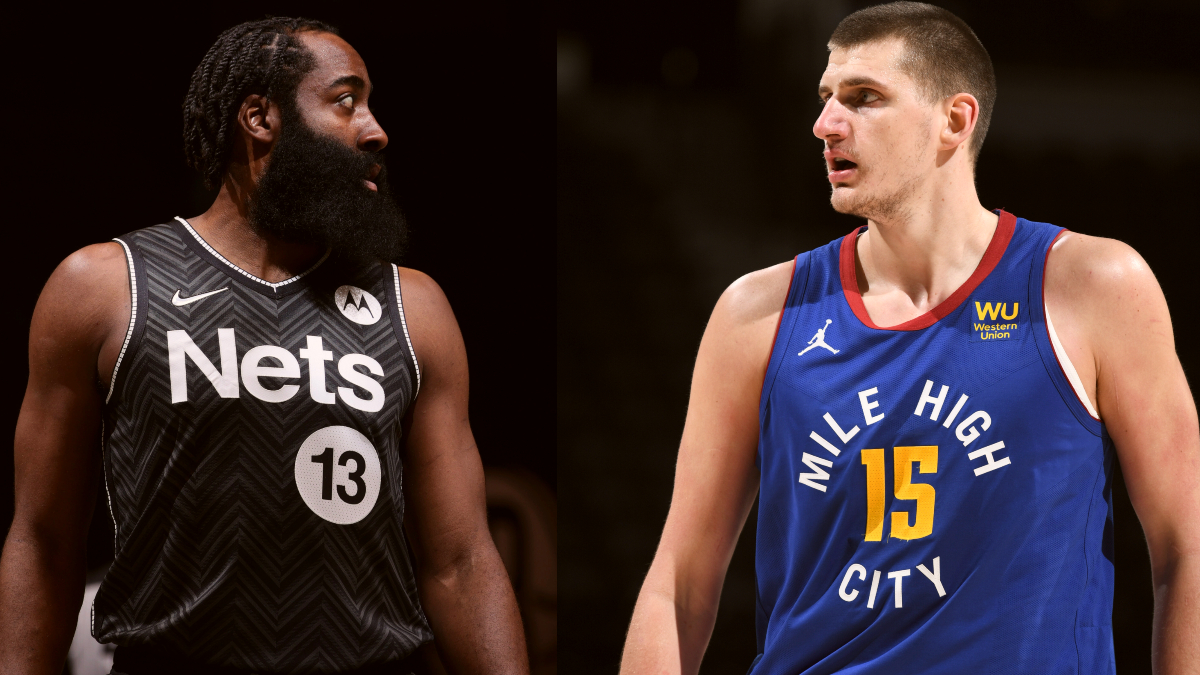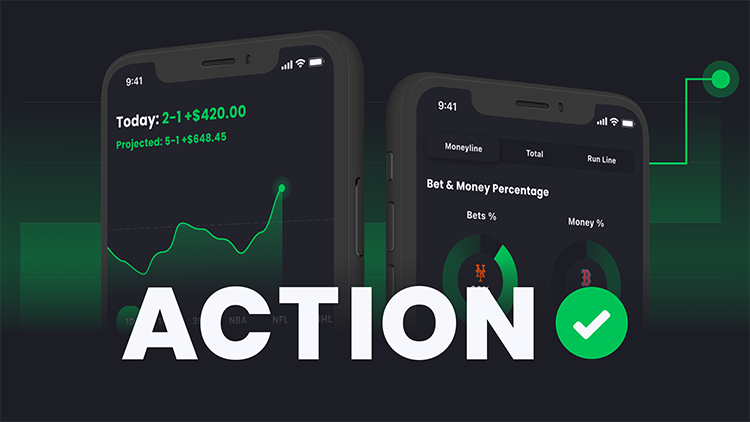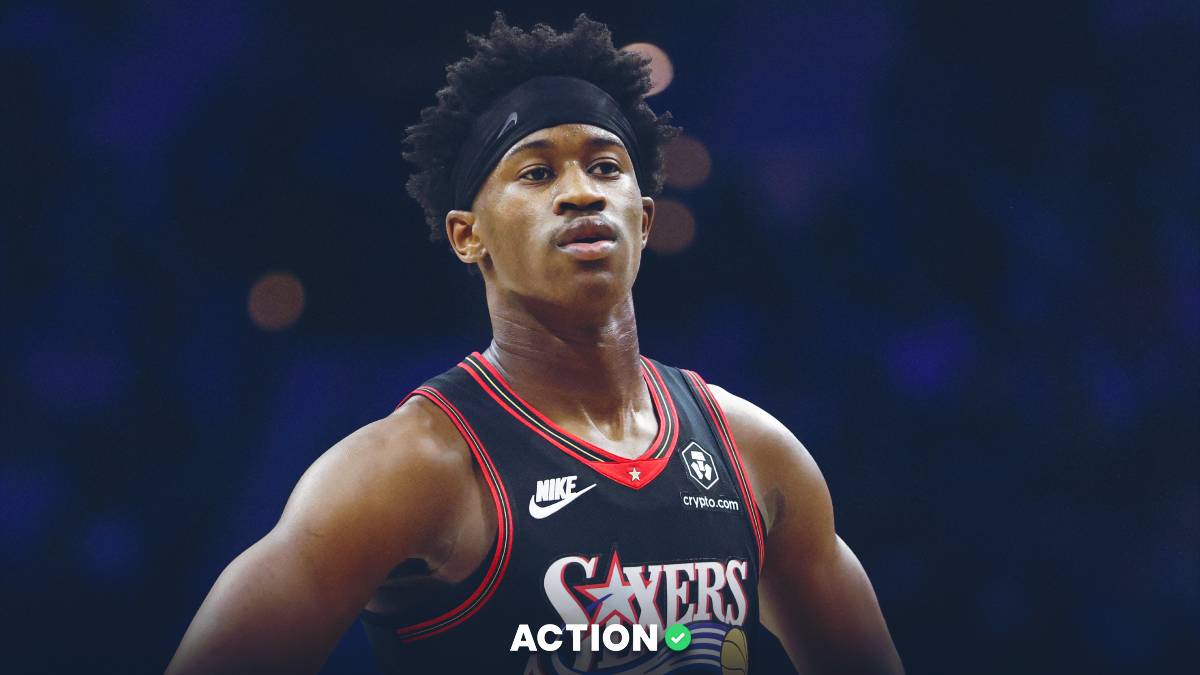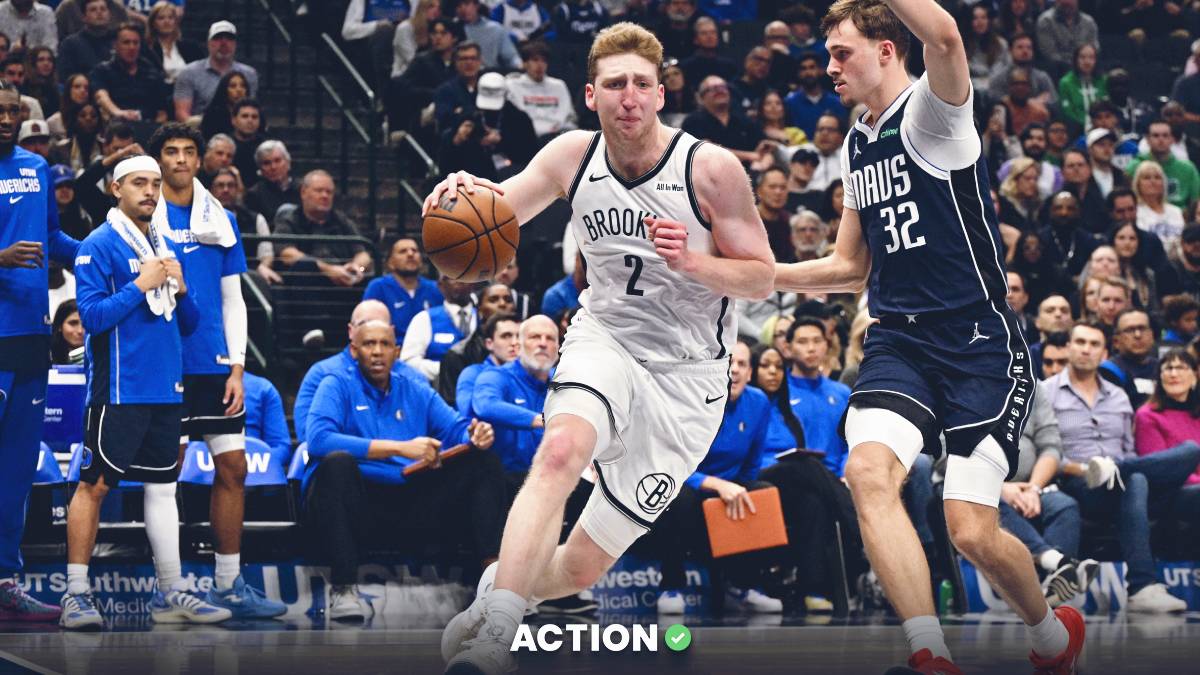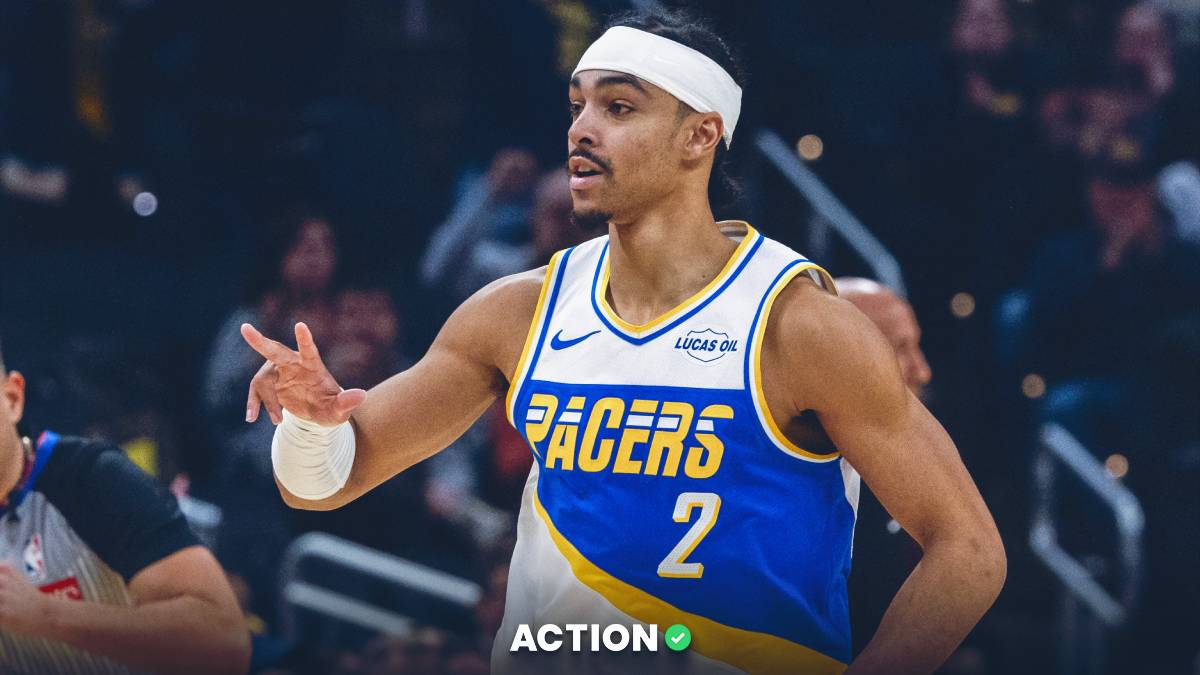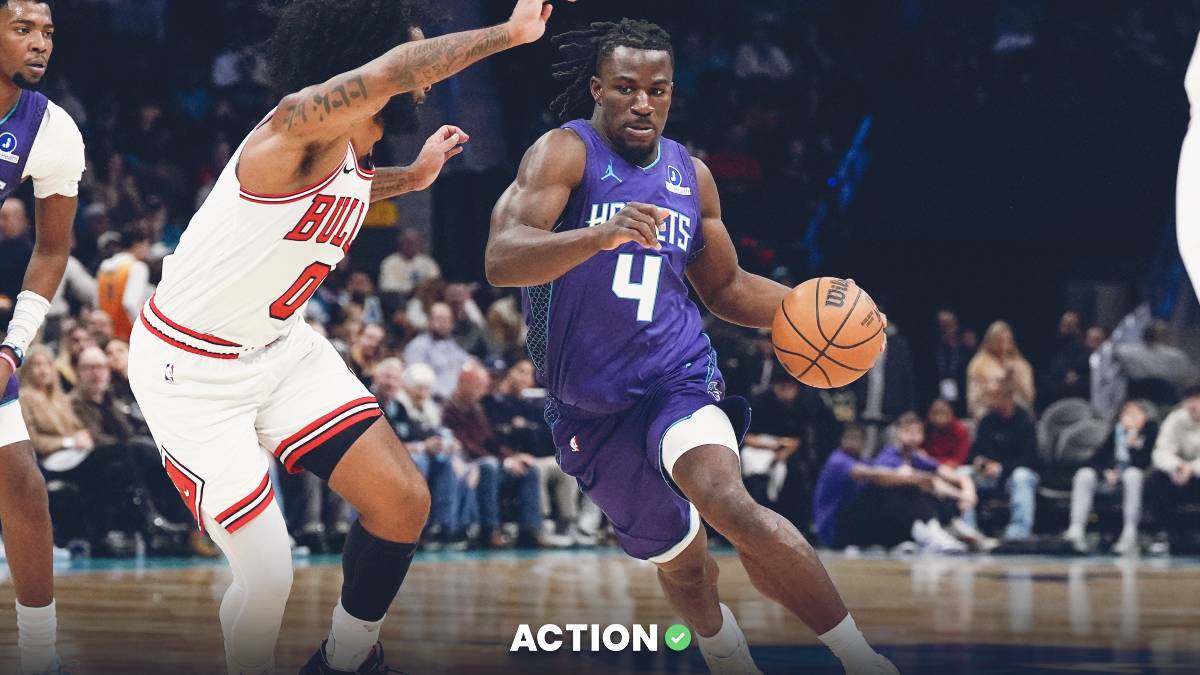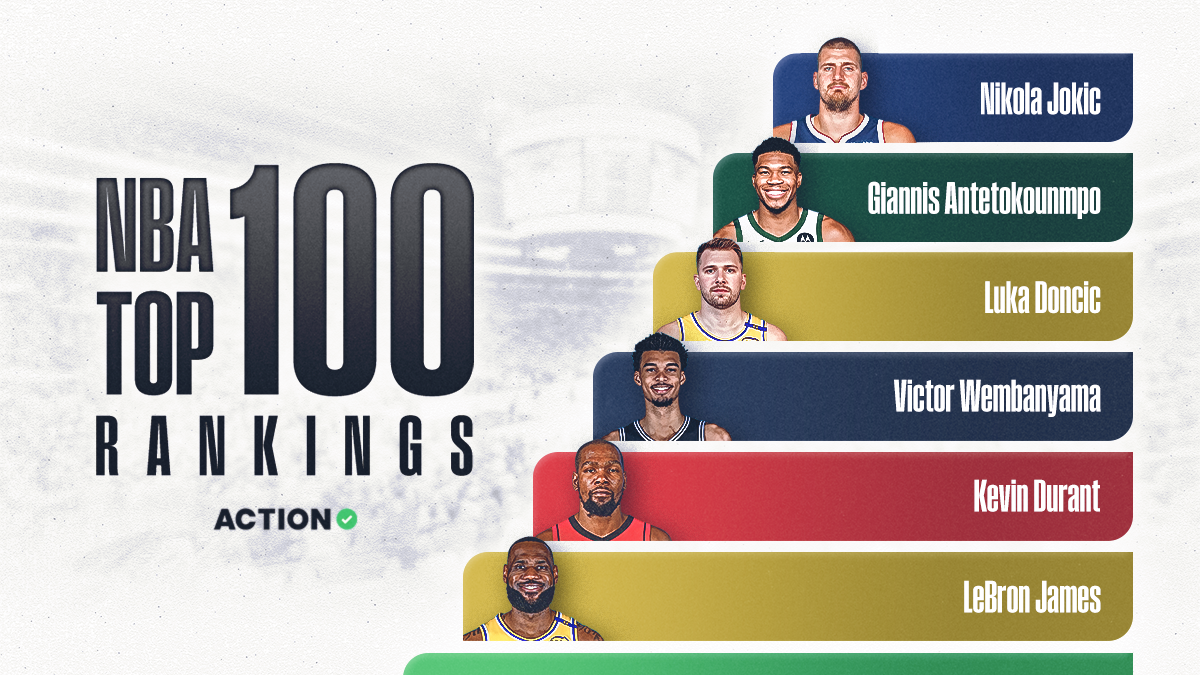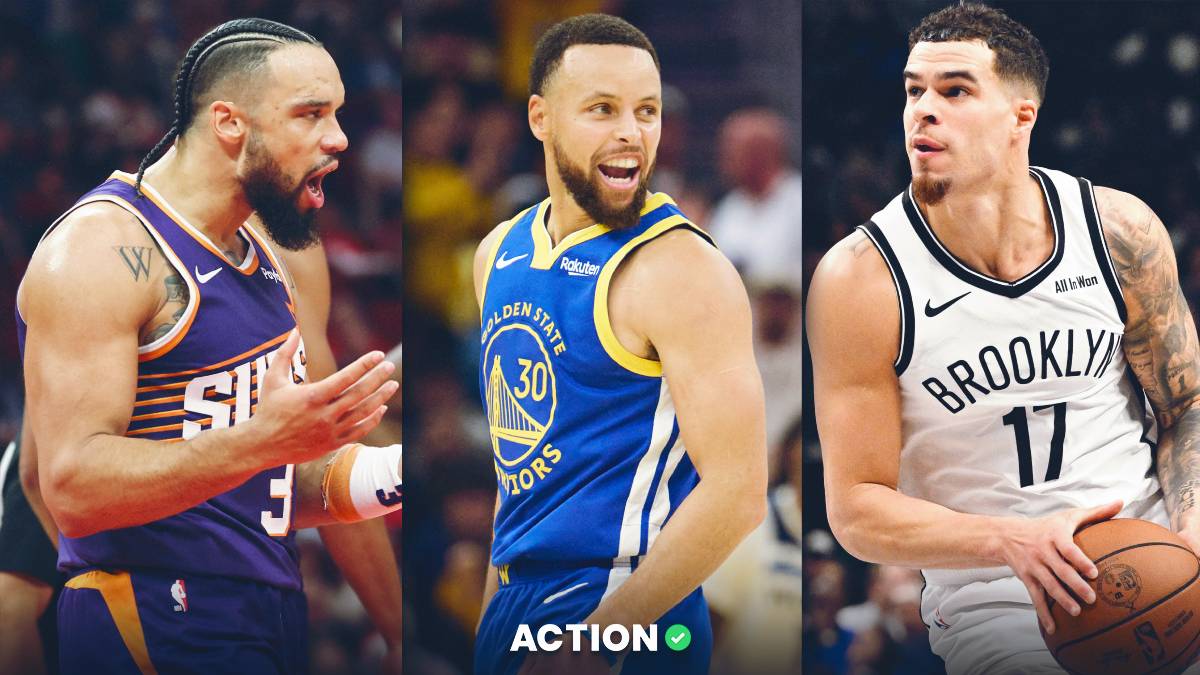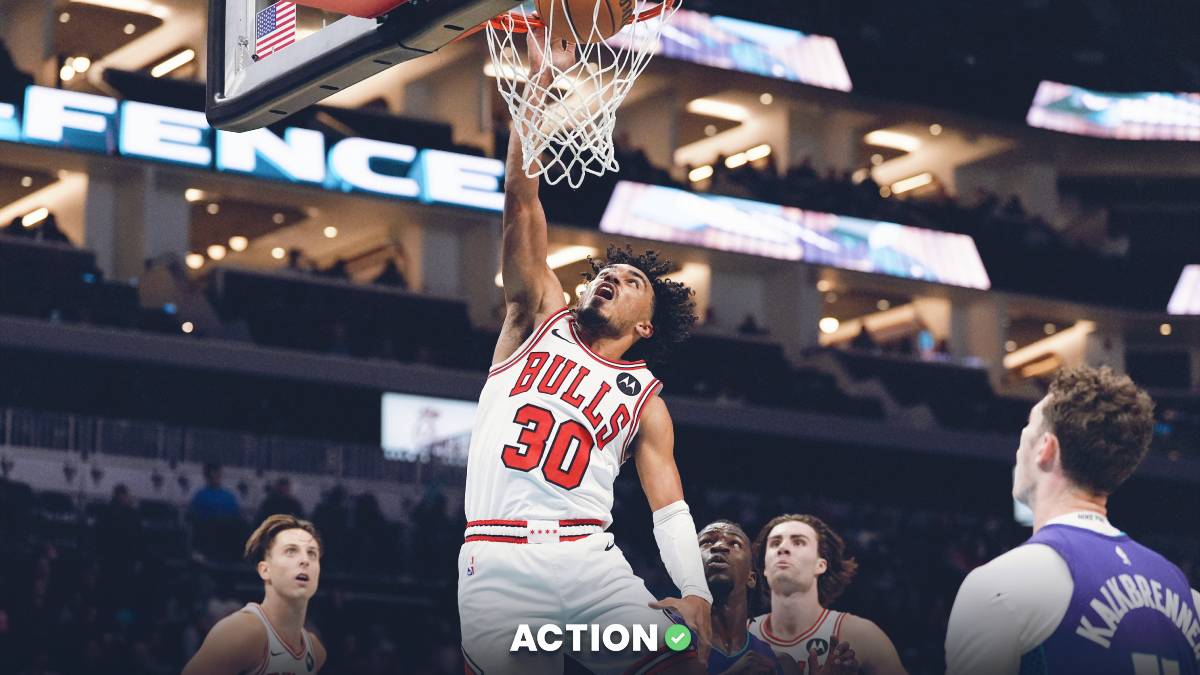- There can only be one MVP, but in the race to get there, a case could be made for a handful of the top players depending on your criteria -- especally this season.
- Betting analyst Raheem Palmer explains how he's using his betting model to predict this season's NBA MVP winner and if there's value in the futures market.
- As of Sunday, March 21 two crafty stars have replaced the injured Joel Embiid and LeBron James as frontrunners.
NBA MVP Odds
In a sport where one player can shift the dynamics of a team, a conference and the league as a whole, the NBA's Most Valuable Player Award is the highest accolade an individual can receive. It's also one of the league's most polarizing topics of conversation.
Winning an MVP award can single-handedly define a season, career and legacy of a player, so much so that every award winner who has been eligible for the Naismith Memorial Basketball Hall of Fame has been inducted.
Still, the criteria and process of selection for the player who generates the most value for their respective franchise has always been subjective.
Is the MVP the best all around basketball player in the league, the best player on the team with the best record, the player with groundbreaking historical numbers or the player who elevated his team the most relative to that team's expectations?
These are valid narratives and each voter can justify their case for the player of their choosing depending on what matters most to them.
With a deep field of players with legitimate cases and solid sample size of games to analyze, I set out to quantify and predict who is most likely to win based on individual contributions, team success and past voting patterns.
I'll be tracking the MVP race for the rest of the season using my model to determine if there's value within the betting markets.
How the Model Works
To predict the winner of the Most Valuable Player Award, I performed a regression analysis — a statistical process for estimating relationships between a dependent variable (outcome variable, ie: MVP votes) and independent variables (predictors, ie: points, rebounds, team Wins, etc).
I collected data from the 1985 through 2020 seasons, featuring all regular and advanced statistics on Basketball-Reference.com as well as voting patterns for players who finished top in MVP votes for each season.
Since individual performance is a huge part of winning the MVP Award, I included points, rebounds, assists, steals, blocks, minutes played, field goal percentage, VORP (Value Over Replacement Player) and Win Shares Per 48. To incorporate team performance, I included playoff seeding and win percentage as opposed to wins and losses due to shortened lockout seasons in 1999 and 2012. To account for players who exceed preseason expectations I've also included preseason title odds from basketball reference.
Despite starting with 56 different variables, many variables weren't statistically significant and there were others that had collinearity issues which forced me to remove many of them from the final model. For example, if you know a player's field goal makes and attempts, you know their field goal percentage.
An advanced statistic like PER (Player Efficiency Rating) is also correlated with Box Plus/Minus. True Shooting percentage takes into account free throws and 3-point attempts, so you can see how many of these variables are thrown out based on multicollinearity.
I also used two different regression techniques for my analysis: linear regression and logistic regression.
Linear Regression Model
A model that assumes a linear relationship between the
input variables (x) and the single output variable (y).
This model predicts the amount of voting shares each player would receive based on their individual statistics and team wins. Because the amount of MVP voters have changed over time, I use voting shares as a dependent variable as opposed to votes.
Logistic Regression Model
A regression model where the dependent variable (DV) is
categorical. The model takes on binary dependent variables — that is, where it can take only two values: pass/fail, win/lose
In this model, we're simply predicting the probability of whether each player will win or lose. The Logistic Regression model tends to put more emphasis on team wins and seeding than the Linear Regression model.
If a player isn't on a team that's the first or second seed in their conference, the Logistic Regression model doesn't give them much of a chance at winning MVP based on historical voting trends.
Historical Factors
Winning Matters
Since 1985, 28 of the 36 MVP Award winners have led their team to the number 1 seed in their Conference, six have led their team to the 2nd seed and the other two were outliers: Michael Jordan in 1987 (No. 3 seed) and Russell Westbrook in 2017 (No. 6 seed).
No Country for Old Men
From the first MVP winner in 1956 to the present, there have been 13 league MVPs who were aged 30 or above. Six of them won in the 1990s — Magic Johnson (90), Hakeem Olajuwon (94), Michael Jordan (96, 98) Karl Malone (97, 99). Steve Nash (05, 06) was the last player to win MVP as a 30-year-old.
Outlier Performances
The linear regression model, which used voting shares as a dependent variables predicted 24 out of the 36 Award Winners (66%). The logistic regression model did even better, predicting 29 out of the 36 Award Winners.
Here are some of the notable predictions my model got wrong (you'll notice these are award seasons that are still debated today):
Karl Malone (1997): If there's a poster child for voter fatigue its Malone's 1997 MVP campaign. Jordan led the Bulls to a 69-13 record with the No. 1 seed in the Eastern Conference while the Malone and the Jazz finished 64-13.
My linear regression model projected that Jordan would receive 65% of the voting share while my logistic regression model gave Jordan an 82% chance of winning compared to Malone's 74%.
Allen Iverson (2001): There's some discrepancy between my two models during this year. My linear regression model had Shaquille O'Neal generating the most voting shares followed by Chris Webber. However, my logistic regression model had Iverson winning largely due to leading the 76ers to the No. 1 seed in the East.
Steve Nash (2005, 2006): Because player points per game have been such a big factor in determining past MVPs, my model didn't know how to account for Nash who averaged 15.5 and 18.8 points per game in his back-to-back MVP campaigns.
In his 2004-05 season my linear regression model predicted Dirk Nowitzki would receive the majority of the voting share and in his 2005-06 season, my models projected he'd lose to both Chauncey Billups and LeBron James.
Kobe Bryant (2008): Although Bryant averaged 28.6 points, 6.3 rebounds, 5.4 assists, and 1.8 steals while leading the Lakers to the No. 1 seed in the Western Conference, this one wasn't without controversy. For many this was seen as the lifetime achievement award after not getting the MVP during previous seasons.
The Lakers winning a late-season matchup against the Hornets, that gave Bryant enough of an edge to get the award. My models aren't aware of individual games and projected Chris Paul to garner 58% of the voting share and win the award 59% of the time.
Russell Westbrook (2017): Westbrook's triple-double campaign got him the award despite finishing with the No. 6 seed in the Western Conference.
Both models projected James Harden to win with the logistic regression model projecting that he'd have a 97.3% chance of winning. A player winning the MVP Award on a lower seeded is so out of the norm that I'm not sure there's any model that would capture the outlier season Westbrook had in addition to the narrative of him carrying the Oklahoma City Thunder without Kevin Durant.
All Models Are Wrong, But Some Are Useful
Like any other model, these projection systems have their flaws. The drawback to these models is that they assume each player's performance is independent.
Although they can rank the likelihood of a player winning MVP, it doesn't give explicit probabilities as the predictions assume that the dependent variables are independent between players, so all probabilities between candidates don't sum to 1.
So I wouldn't recommend blindly betting the rankings from these models. This should be used as a guide along with additional analysis (and of course recognizing the season narrative) before making a wager.
MVP Odds Tracker
Here’s a look at the odds to win the NBA MVP award compared to my model's projections. Reminder: This is a snapshot of the race at a given point in time, so these numbers will evolve over time.
2021 MVP Race Updates
Wednesday, March 31
Since we’re just halfway through the season, running a regression on games played compared to previous seasons doesn't give a favorable result, so instead I added the percentage of games played as an input variable. The change impacts the linear regression model most as Nikola Jokic is expected to get the most voting share, followed by James Harden and Joel Embiid.
My logistic regression model weighs seeding heavily, so with the Philadelphia 76ers a half game ahead of the Brooklyn Nets in the Eastern Conference, Embiid still has the highest probability of winning the award based on my model followed by James Harden and Donovan Mitchell.
Nikola Jokic is the odds on favorite at all sportsbooks to win the NBA’s Most Valuable Player Award with DraftKings posting the best odds at -113.
It’s hard to disagree with the line move — Jokic is averaging 26.8 points, 11.1 rebounds and 8.5 assists per game and ranks first in made field goals, VORP (5.8), BPM (12.1), Win Shares (10.6), Win Shares Per 48 (.311), and PER (31.6).
Jokic has two things working against him. First, he lacks the flashiness of a traditional MVP candidate with athletic dunks, step back 3s and a general polarization that shakes up NBA media and fans.
The Nuggets are also fifth in the Western conference, which makes his case tougher compared to the other top names with more team wins. After adding Aaron Gordon and Javale McGee, however, we could see the Nuggets finish as a top three or four seed in the West, which would make this Jokic's award to lose.
James Harden has seen his odds drop to around +500 across the market, but based on previous voting precedent for the award (ie: best performance + best record/seed), I believe he should be the favorite.
I suspect many voters will weigh his exit from Houston and his current teammates (Kevin Durant and Kyrie Irving) against him. In 32 games with the Nets, Harden is averaging 26.4 points, 11.4 assists and 8.9 assists.
Even more impressive is how he’s carried the Nets to victories without Durant and Irving. Since being traded from Houston, Durant has played just nine games while Irving has missed eight games of his own. Harden’s ability to raise the floor with his scoring, playmaking and durability is the reason the Nets are just a half game back of the No. 1 spot in the East. Still his chances of winning will likely take a huge hit when Durant returns from injury.
Both LeBron James and Embiid have seen their odds drop even further as they sit out due to their respective injuries. The 76ers have managed to find some success in Embiid's absence. In the eight games Embiid has been sidelined the 76ers ranl fourth in Net Rating (8.1) and although their offense has taken a hit, they rank first in Defensive Rating, holding teams to 102.2 points per 100 possessions during this time frame.
Given how well his team has performed without him, it’s clear that Embiid’s MVP case is on thin ice. Nonetheless, Embiid could return this week and it’s possible that the +750 has some value as he still has a month to make his case.
The Lakers, on the other hand, have struggled without James and you have to wonder if there are some voters who will reward LeBron for how bad his team is without him. The Lakers are 2-4 without James this season and they struggled to get wins against the Cavs and Magic, so his impact on his team is immediately evident. Still, you can’t win MVP if you’re on the sidelines.
Speaking of injuries, it’s clear Damian Lillard isn’t healthy. He sat out last Friday’s matchup against the Magic with a left knee contusion and although he’s always willing to play through injuries, there’s been a significant drop off in his performance.
During the last four games, Lillard is averaging 21.3 points, while shooting 34.2% from the field and 19.4% from behind the arc, down from his season averages of 29.8 points per game at 44.6% from the field and 37.4% from the three.
It’s also clear that he’s not nearly as aggressive and is picking his spots more, thus his field goal attempts have gone down for 20.6 to 18.3. On a Trail Blazers team that struggles to defend, the margin for error isn’t very high so if Lillard isn’t healthy, we could see the Blazers team slip in the standings, which makes him a bad bet to win the Award at this point.
Sunday, March 21
Injuries have truly shifted MVP race over the past week. Joel Embiid was considered the odds-on favorite to win the award and has since seen his odds drop as low as +800 after he suffered a bruise in his left knee. My model is still high on Embiid, but not nearly as high as it was before the past week.
LeBron James subsequently became the favorite to win the award at around +160 across the market. The Lakers won four in a row coming out of the All-Star break and after James' performance against the Hornets (37 points, eight rebounds and six assists), he seemed to be in great position to bring home his fifth MVP Award.
That is until he suffered a high ankle sprain Saturday against the Atlanta Hawks. James' chances of winning the award have dropped considerably as the average missed time for high ankle sprains is 10-11 games. It'll be tough to make up the lost ground even if he's close to 100% when he returns.
His odds have since dropped to +550 and it has also shifted the odds of every other candidate with Nikola Jokic now the odds-on favorite to win the MVP award (-110) at PointsBet and DraftKings.
From my view, Jokic has been the true definition of most valuable player, averaging 27 points, 8.6 assists and 11.2 rebounds while carrying his team through injuries to Gary Harris, Will Barton, Paul Millsap, Jamychal Green and Pj Dozier. If there’s anything holding back Jokic’s chances it’s the Nuggets’ team record at 25-16 that has them tied for fifth in the Western Conference.
My logistic regression model still has Jokic with only a 2.7% chance of winning based on the Nuggets' position in the standings, however they have won eight out of their last nine games and are poised to make a run with many of their players getting healthy down the stretch.
James Harden has seen his odds drop from +2500 to +1100, and according to my models, that’s still too low. My logistic regression model currently gives him a 77% chance of winning, while my linear regression model projects him to receive 48% of the Voting Share.
The Nets have won 14 out of their past 16 games and that’s largely due to Harden averaging 27.3 points, 11.2 assists and 10 rebounds during this timeframe. What my model doesn’t account for is Harden’s ugly departure from the Houston Rockets as well as having Kevin Durant and Kyrie Irving on his team.
While he is carrying this team with Durant out of the lineup with a hamstring injury, you have to wonder how voters will view him when Durant comes back. If there’s a flaw in my model (remember, they are all flawed), it’s that it weighs team seeding heavily based on past voting habits, hence Irving and Durant in the top 10.
Giannis Antetokounmpo has seen his odds drop dramatically after the injury to James — at +1600 on Friday down +700 at the lowest. Although voter fatigue is the biggest detriment to Antetokounmpo’s MVP case, voters may not be able to ignore how well Giannis has played this season with so many stars out.
Damian Lillard's odds are as long as 14-1 and although he’s carried the Portland Trail Blazers through injuries to CJ McCollum and Jusuf Nurkic, with the Blazers sitting 25-16 and sixth in the Western Conference it’s unlikely we see him win the Award.
Lillard is averaging 30.6, 4.5. 7.7 his clutch play is responsible for keeping the Blazers in the playoff hunt. The Blazers have a Pythagorean Expectation of 20-21, which would translate to 35-37 over 72 games and 40-42 over a full 82.
But the Blazers are playing at a 43-win pace this season, which would be a 50-win pace over the course of a full season, which shows us this team is truly outperforming its point differential.
A big part of that is their play in the clutch where Lillard reigns supreme. The Blazers are a league leading 18-6 in these games and in the clutch they have an Offensive Rating of 132.8, a Defensive Rating of 102.7 for a total Net Rating of 30.1.
If the Blazers can string together a run with the return of McCollum, Lillard certainly has a shot — but I wouldn’t bank on it unless the Blazers can improve via the trade market.
Where We Stand At the Halfway Mark
Joel Embiid
If the season ended today, Joel Embiid would be your MVP. He is averaging 30.2 points, 11.6 rebounds, 3.3 assists, 1.4 blocks and 1.2 steals per game while leading the Philadelphia 76ers to a 24-12 record, the best mark in the Eastern Conference.
The 76ers completely fall apart without their big man as they are 23-7 with Embiid playing and 1-5 without him. Embiid's value goes beyond the games he's sitting out as the 76ers a whopping +18.1 points per 100 possessions with Embiid on the floor vs off.
He also entered the All-Star break on a high note, leading the 76ers to a 13-point comeback win against the Utah Jazz putting up a 40-points, 19-rebounds performance against the top team in the West.
At this point, the award his Embiid's to lose: My linear regression model gives him more than 44% of the voting share while my logistic regression model gives him about 54% to win.
James Harden
In 23 games with the Brooklyn Nets, James Harden is averaging 25.5 points, 11.4 assists, and 8.7 rebounds. Even more impressive, the Nets are 17-6 in these games despite only playing 10 games with Kevin Durant. The Nets have the league's best offense, scoring 120.4 points per 100 possessions and given Harden's ability to both score and facilitate it's tough not to give him a lot of credit for those marks.
We've since seen his MVP odds drop from 36-1 to as low as 18-1 in the week before the All-Star break and with the Nets just a half game behind the 76ers for the No. 1 seed in the East, Harden could be live in the race for MVP.
Giannis Antetokounmpo
The Greek Freak has spoiled us. He's averaging 29 points, 11.7 rebounds and 5.9 assists while leading the Milwaukee Bucks to 22-14 record this season. They are just two games out of first place in the East despite missing Jrue Holiday for 10 games and having an unimpressive bench.
In their last primetime game before the break, Antetokounmpo dominated the Clippers on both ends of the floor, scored 36 points, grabbed 14 rebounds, and dished out five assists in the comeback win. The Bucks are +9.2 points per 100 possessions better with the back-to-back MVP winner on the floor and if he were anyone else, there would be buzz surrounding his MVP caliber season.
Again, he has spoiled us. And unfortunately the bar for winning three in a row is higher. Despite ranking second in VORP, my model projects him to have the fourth-most voting share.
Nikola Jokic
Jokic is at the top of nearly every advanced metric this season. He's first in VORP, Win Shares, BPM and PER. With Jokic averaging 27.1 points, 11 rebounds and 8.6 assists, my projections would have him as the top MVP candidate if he had the team success to go along with it.
The Denver Nuggets have dealt with injuries the entire season and have struggled coming off a season in which they played deep into the bubble. Nonetheless, my linear regression model has him third in predicted MVP Voting share.
Damian Lillard
When the Portland Trail Blazers lost CJ McCollum for four weeks to a left foot injury on Jan. 18 (just days after losing Jusuf Nurkic to a broken right wrist), many analysts thought their season was over.
Lillard promptly put the team on his back and has led the Blazers to fifth seed in the Western Conference behind 29.8 points, 8.0 assists and 4.3 rebounds.
You can easily make the case that Lillard adds more value to his team than anyone else in the league given the circumstances, but his team will need to be good enough down the stretch to for him overcome the rest of this crowded field.
LeBron James
If you listened to our podcast, you'd know, I was on the LeBron James MVP train earlier in the season when much of the market believed that he was going to rest this season.
James can average 25/8/8 in his sleep and make the the push in big games to give him the opportunity to steal the award in a season with unusual circumstances. He's basically doing that now while making the Lakers 11.8 points per 100 possessions better while on the floor vs off.
The MVP award is still in play for the King, but James' stock has taken a hit since Anthony Davis got injured. Although that also coincided with the loss of Dennis Schroder, the Lakers limped into the break going 3-6 in their past nine games.
With the Lakers dropping down to No. 3 in the West and James putting up pedestrian numbers per his standards, my projections have him getting just 23% of the voting share.


